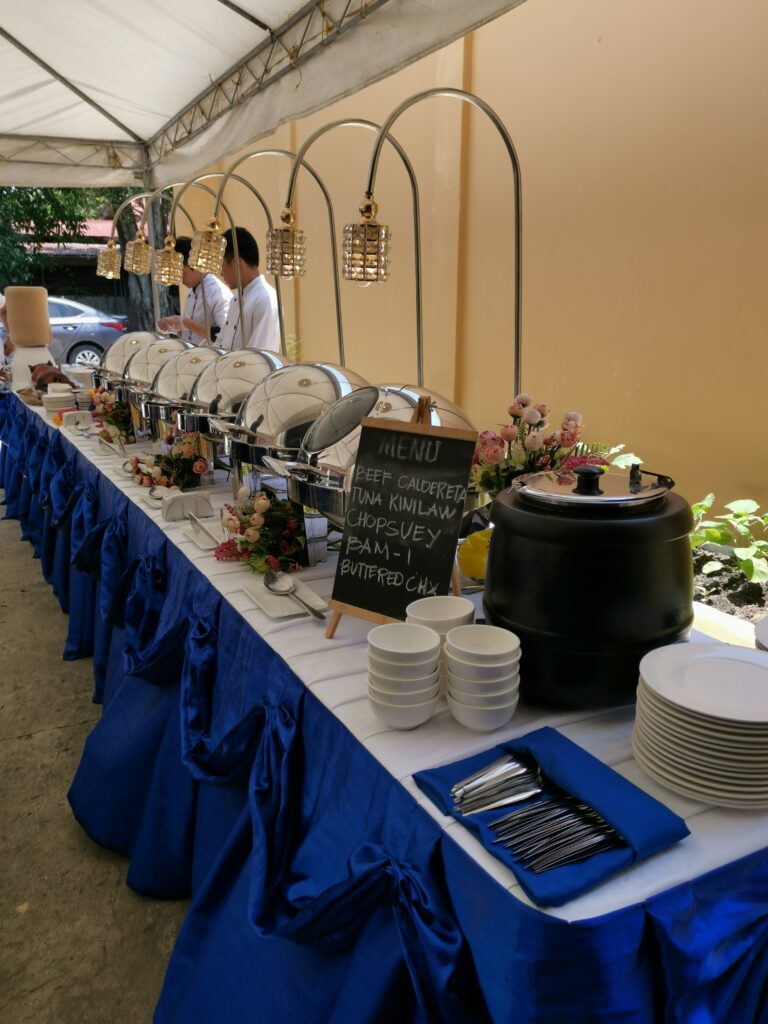Home-based catering companies are becoming more and more common. That makes sense that working from home is so alluring to professional cooks and caterers, since it’s basically a freelance job anyhow.
You’d save money on costs like rent and electricity for an entire building, and you’d have the freedom to work whatever hours work best for you. You can also take on as much or as little business as you need or choose, giving you more control over your income.

There are disadvantages to launching a home-based catering company, though. You won’t be able to welcome guests in a formal workplace setting, among other factors, in addition to worries about food safety. or define boundaries between work and life that many other freelancers tend to overlook.
Additionally, you’ll need to deal with state licensing requirements for producing commercial food, which may or may not determine if your facility qualifies for opening a business. Talking about
Can you run a catering business out of your home kitchen?
It is undoubtedly a choice. However, it can be trickier than you imagine.
It will be your responsibility to handle any licenses, permits, and any renovations that could be required in order to meet agency standards. Health inspections by the state and local governments will also be conducted in your kitchen. The management of your food prep area will subsequently be governed by regulatory standards, which include comprehensive guidelines for things like specific prep areas, refrigeration needs, and the disposal of food waste, to mention a few.
If all of this seems like a dream come true, you’re all set to launch your own catering company!
12 necessary steps to launch a catering business
1. Establish a schedule.

It’s easy to start a catering business provided you follow the right procedures. The problem is that nothing happens as quickly as you would assume. particularly with regard to acquiring the paperwork needed for food handling, safety, and sales. First, create a highly flexible schedule for the tasks you wish to accomplish when in order to manage expectations.
2. Examine the catering sector.

Get going locally. Are there any other caterers in your area? What can they provide? What distinguishes your catering business from others?
Decide which market to aim for. Will you specialize in black tie events or casual outdoor music festivals? Once you’ve mastered that, ascertain who employs caterers for these occasions and what their positions entail.
Establish your sales hierarchy. Will you need to start by making cold calls and sending emails, or is your network big enough to start getting booked for parties?
Ascertain the demand. Do you have a large number of prospective clients that are eager to speak with you? Or are there too many caterers in your area that offer the services you want?
3. Create a business plan for catering.

You’ll base a lot of your plan on your research and schedule. Don’t forget to include a section for each of the following in addition to these factors:
- Mission proclamation
- Short-term goals
- Specific startup expenses
- The ownership and tax structure
- Services you intend to provide
- Your intended readership
- An examination of your main rivals
These sections can be answered in a line or two when you first develop your business plan, but they will assist guide your work as you proceed. You may always return to this catering business plan later and make any necessary adjustments when you’ve learned more and had more experience.
4. Define your catering company’s objectives.

Realistic goals are usually a good idea, but if this is your first time running a catering company, it might be challenging to define what that means. It may take some time to learn how to develop and accomplish goals in your new sector because it differs depending on your experience, market, and niche.
Choosing the kind of catering business objective you want to accomplish is one thing you can do. expecting to cater 100 events is very different from expecting to generate P1,000,000 year. Whichever goals you decide on, just remember to periodically review them. Making practical decisions for your business will be made easier the more experience you have.
5. Examine the tax legislation.
You must comply with state and municipal rules in the area where your catering business will be located in order to launch a catering business. Fortunately, there are a ton of useful resources available to assist ease the process.
6. Begin by learning the fundamentals.

Your catering business will require each of the following to get off the ground:
- Webpage. Verify the alignment of your keywords, rich snippets, and metadata. To further optimize your website, use your business name, location, and speciality in all SEO-related content.
- Cards for business. Give these to customers and place them on exhibits at events you cater so that people who appreciate your food are aware of the name of the business that produced it.
- Template for a contract. Try researching online and composing as to your needs. There are customizable catering deals available online. Additionally, consider the area in which you’re working and the system accordingly.
- Taxes & business registration. It’s recommended to use a sole proprietorship at the start when launching a catering firm. Catering entails going into people’s homes, serving them food, and having a large number of personnel move around. Test the waters if it suits you.
- Coverage. In the same vein, having insurance never hurts and is in fact required in many states for catering businesses. Purchasing General Liability Insurance for your catering business is a wise first step toward safeguarding it.
- Licenses & Permits. Details differ depending on the area and type of catering service, but generally speaking, you’ll need each of the following:
- Business license
- License for food establishment
- liquor license
- License for food service
- Certification in food management
Once again, you should have no trouble finding many comprehensive materials from your state and municipal governments.
7. Establish your marketing spending plan.

It’s time to examine your budget allocation in more detail after your goals have been set. First, take care of all the fundamentals of your catering business. Certain certifications or laws could need unanticipated improvements.
Examine your leftover start-up finances after you’ve resolved all of that. When you’re just starting out, you should devote at least 25–35% of your remaining cash to marketing. When you eventually have a loyal customer base and consistently get recommendations, you can cut back on your marketing expenses.
Making a decision based on the level of competition is a wise move as well. Lean toward the full 35% if you have more than ten active competitors in the catering market. You can probably aim for the 25% end of the range if you have less than ten competitors, some of whom appear to have no digital marketing presence at all.
8. Create a a menu and price list.

Should you offer a fully customized meal to every new customer or focus on a certain cuisine? Both are excellent choices; however, make sure to save time by preparing some simple menus for them to peruse. Make sure you are comfortable with each recipe by testing it out in advance with loved ones.
The next step is to set up a price plan. The majority of catering businesses provide pre-made packages or a fixed fee. Additionally, you must determine whether to accept deposits and how to handle unique requests. In this case, there really isn’t a right or wrong answer; simply go with what seems most comfortable for you.
9. Select your vendors.
If you aren’t going to shop for yourself, you must select a few carefully screened vendors. A tried-and-true method of selecting the top providers is word-of-mouth. However, if you don’t already have a list of individuals to approach, think about expanding your network at a trade show or event dedicated to your sector.
10. Advertising your catering company.

Even while the majority of your catering business will eventually come from word-of-mouth and referrals, there are many innovative ways to market your catering company when you’re first getting started. Consider attempting one or more of the following in addition to your website, social media accounts, and online review site profiles:
- Join forces with a nearby florist that specializes in wedding flowers.
- Samples are free for anyone who happens to walk by your business area.
- Set up a booth at your neighborhood farmer’s market and sell scaled-down copies of your specialty recipes.
- Make a request to be placed on the preferred vendor lists for banquet halls and event spaces in your area.
- Find the most influential food bloggers in your community and inquire with them about possible features for your catering business. Food bloggers would be an excellent place to start.
- Of course, there are a ton of creative and affordable ways to promote your company. Don’t be scared to try different things until you find what works best for your specialty catering business.
Category:

Leave a Reply